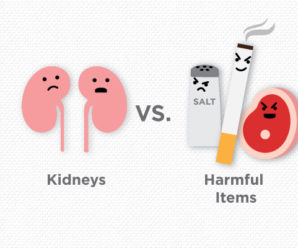
If you have cancer, your health care providers will draw blood often to check how your body is responding to treatment and manage medical problems caused by low blood cell counts.
A complete blood count (CBC) lab test checks three main types of blood cells – red blood cells, white blood cells and platelets. Red blood cells carry oxygen through your body, white blood cells help fight infection and platelets help form clots to control bleeding.
“Chemotherapy, radiation and cancer itself, particularly blood cancers, can cause low blood cell counts by affecting bone marrow, which makes blood cells,” said Julene Diedrich, a Marshfield Clinic oncology nurse practitioner.
Even though you have frequent blood tests, you should learn to recognize signs of low blood cell counts and what to do if you have symptoms between appointments.
Fatigue and shortness of breath
Feeling more tired than usual or getting winded walking short distances are signs of anemia, or low red blood cell counts. You also may feel dizzy from lack of oxygen.
“You’re expected to feel tired during cancer treatment, but if it’s getting increasingly worse, you should let your health care team know,” Diedrich said. “Sometimes the answer is an extra nap but you may need a blood transfusion to increase the number of red blood cells in your body.”
Fever, chills and infections
Low white blood cell counts increase your risk for infections. Neutrophils are an important type of infection-fighting white blood cell. When levels of these cells drop too low, your doctor may say you have neutropenia.
“Fevers, chills and cough are all symptoms of infection,” she said. “These are things we ask patients to look for when they have low white blood cell counts. When patients are neutropenic, sometimes the only sign of infection is slight fever.”
If you have a fever greater than 100.5 degrees F or you have shaking chills, call your health care provider.
Your doctor sometimes can give you medications to boost your immune system and help your body produce white blood cells when or if you are receiving chemotherapy.
To avoid getting sick, wash your hands frequently and stay away from sick people and crowds.
Bruising, nosebleeds and bloody stool
Low platelet counts, called thrombocytopenia, make it harder for your body to control bleeding.
Bruising easily, frequent nosebleeds and bloody stool or urine are signs your platelet counts are low. You may notice small, red pinpoint bruises called petechiae. Let your doctor know if you have these symptoms or go to the emergency department if you have uncontrolled bleeding.
Patients with low platelet counts sometimes need platelet transfusions.
Avoiding low blood counts: An ongoing challenge
“Cancer treatment is moving toward treatments that specifically target cancer cells and aren’t as harmful to healthy cells,” Diedrich said. “Right now, low blood cell counts are still expected during most cancer treatment.”
You can do things to stay healthy when your counts are low, like getting good rest and nutrition, staying hydrated and practicing good hygiene.
Attend all blood draws and appointments so your cancer care team can monitor and treat low blood cell counts quickly.
Related Shine365 stories:
A guide: Cancer stages, terms and side effects
Reduce infection risk during cancer treatment







Leave a Reply